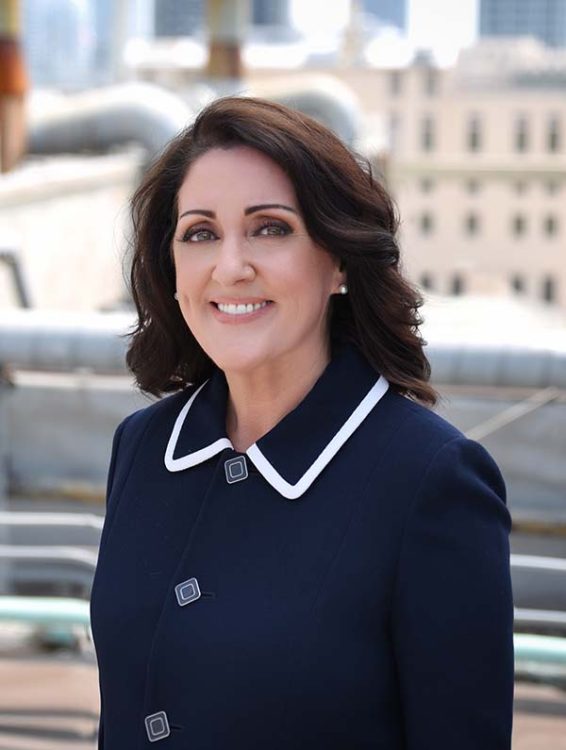Now is the Time for Purpose-Driven Leadership

Bearing the Brunt of it
October 14, 2020
How to Help Your Friend Conquer the Winter Blues
April 20, 2021
 Whether you lead a business, an institution, an association or a nonprofit— you likely can recite the mission that guides your organization’s work. It’s probably printed on documents you see every day, on your website, even framed on the wall in your office. I find it surprising that so many of us can rattle off our institution’s purpose without having put serious thought into our own. But developing and implementing your personal mission – defining your purpose as a leader – is as vital as the statement framed on your wall.
Whether you lead a business, an institution, an association or a nonprofit— you likely can recite the mission that guides your organization’s work. It’s probably printed on documents you see every day, on your website, even framed on the wall in your office. I find it surprising that so many of us can rattle off our institution’s purpose without having put serious thought into our own. But developing and implementing your personal mission – defining your purpose as a leader – is as vital as the statement framed on your wall.
Having a life purpose contributes to our well-being; it encompasses our values as well as our goals; it articulates what makes us distinctive, what our strengths and passions are. It defines what we bring to the table—both personally and professionally. It is our unique, authentic brand. We all have one, even if we haven’t put it into words, either on paper or in our consciousness. Having one, and expressing it through everyday actions, is—I believe—a bedrock of good leadership.
What I have noticed over the years is that the most successful leaders are the ones whose life purposes are in sync with those of the organizations they lead. It is this sense of purpose-driven leadership that distinguishes many men and women, enabling them to make a real difference in their organizations, their industries, the world around them. They are able to align the “whys” that drive their own lives with the “whys” and the “hows” of the teams they lead.
I have found purpose-driven leaders to be a brand unto themselves. They are men and women who lead selflessly, who are not characterized by the airs and attributes of self-importance but rather by aspirations for the greater good, who value the power of personal influence over the power of position. They tend to be self-reflective individuals who genuinely welcome feedback and who—more often than not—understand that the most effective organizations are those that don’t depend on a hierarchical structure.
 Because purpose-driven leaders have seamlessly intertwined their own goals with those of their organizations, they are extraordinarily effective in guiding the work of their teams. Their commitment to addressing social imperatives as well as the immediate and long-range goals of their organization is infectious. Teams that collectively embrace this sense of moral duty tend to gel; they look out for one another, applauding the contributions of each team member with little tendency to take more than their share of the credit. They actively engage, without having to agree, and work together to reach a consensus.
Because purpose-driven leaders have seamlessly intertwined their own goals with those of their organizations, they are extraordinarily effective in guiding the work of their teams. Their commitment to addressing social imperatives as well as the immediate and long-range goals of their organization is infectious. Teams that collectively embrace this sense of moral duty tend to gel; they look out for one another, applauding the contributions of each team member with little tendency to take more than their share of the credit. They actively engage, without having to agree, and work together to reach a consensus.
Teams that don’t have the benefit of purpose-driven leadership, on the other hand, tend to drift. They have difficulty setting tangible goals and staying on course. They lose focus and too frequently find themselves going in different directions or stalling in their progress entirely. Without a leader who can identify and leverage their individual strengths, they find themselves struggling to produce meaningful results of any kind.
The need for purpose-driven leadership isn’t new, but it has taken on new urgency during a time and in a society that has been upended by myriad dilemmas. We’re at a crossroads, and it is vitally important that we choose which direction to go on a variety of issues. My Irish grandmother used to say that “the high road is shorter in the long run.” I don’t think her wisdom has ever been as spot-on as it is right now.
So many of our current problems have been aggravated by the absence of purpose-driven leadership at the top levels of our government. But we can’t continue to blame our lack of progress on years of indeterminate direction. Now is not the time to mourn what we could have achieved, or how we could have addressed the extraordinary challenges that we have faced. We must move decisively forward; we cannot sit back and wait for transformational leadership to emerge. It is there—a little bit in each of us—and we must find ways to put our own abilities and our own passions into action. The future is ours to define.
So, I challenge you to dig deep. Put your own life purpose into words and goals and find ways to weave that purpose into all that you do—professionally, socially, personally. Be the unique purpose-driven leader that only you can be.



